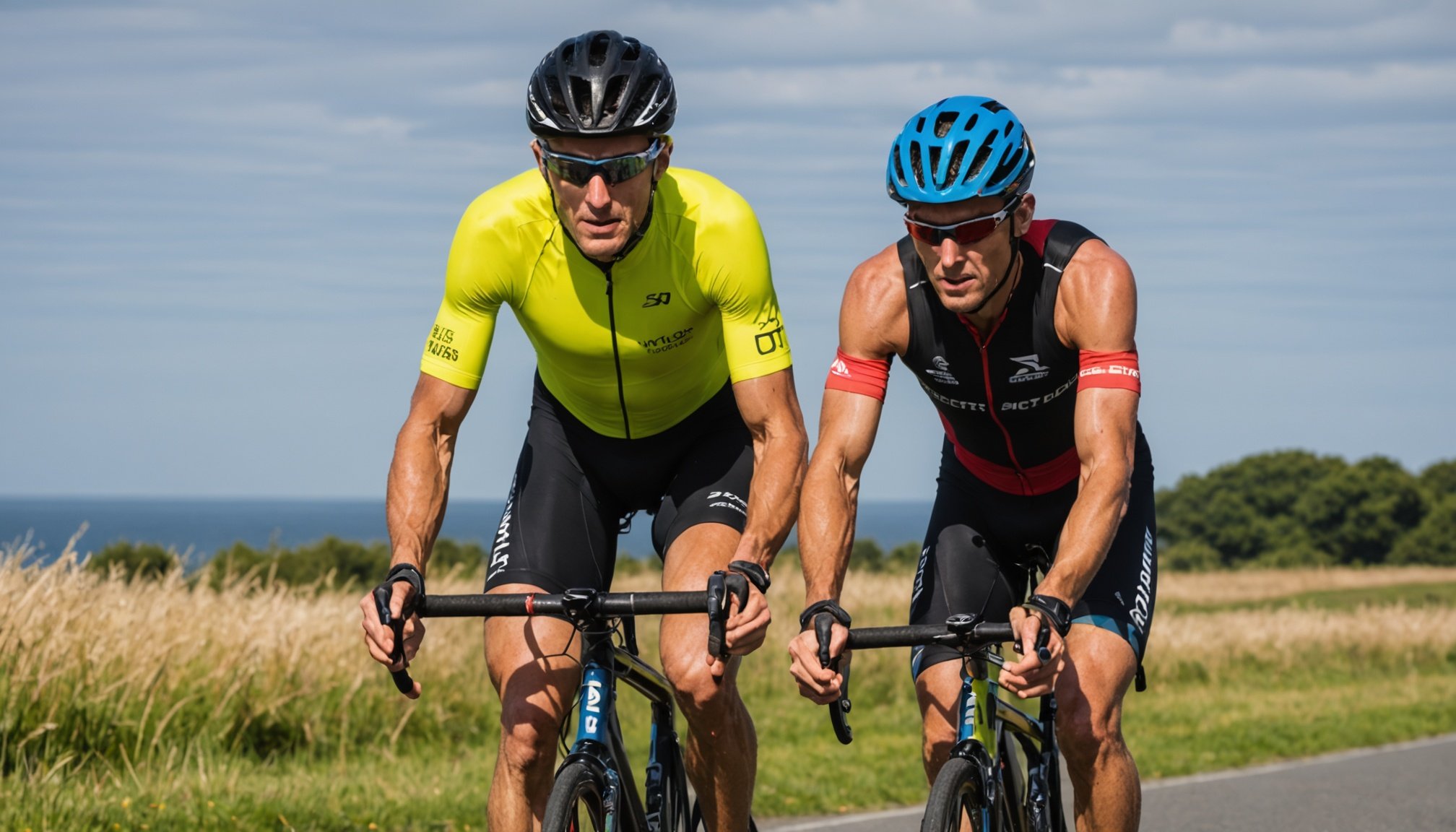Importance of Periodization in Triathlon Training
Periodization is crucial for effective triathlon preparation. It’s a strategic approach to training plans that involves dividing the training cycle into distinct phases, each with a specific focus. This methodical arrangement helps athletes optimise performance and manage fatigue.
In the context of triathlon, periodization offers several benefits. It allows athletes to systematically progress through phases such as base building, strength development, and peak conditioning. This structured approach not only enhances performance but also reduces the risk of injury by preventing overtraining.
Topic to read : Enhancing Accessibility: Strategies for UK Sports Clubs to Support Athletes with Disabilities
There are various models of periodization suitable for UK triathletes. The linear periodization model is widely used, characterised by gradually increasing intensity. Alternatively, the non-linear periodization model allows for more flexibility, shifting between different intensities and volumes. Choosing the right model depends on individual goals and circumstances.
Practical examples of periodization can be seen in the training cycles of successful triathletes. For instance, in the preparatory phase, an athlete might focus on longer, slower runs to build endurance. As they approach the race season, the focus shifts to shorter, more intense sessions to build speed and power. These carefully planned training plans ensure that athletes peak at the right time, ready to achieve their best performance.
Also to see : Elevating Performance: The Role of Mindfulness Techniques in UK Sports Teams
Nutrition Strategies for Triathletes
For triathletes aiming to optimise their performance, understanding the role of essential nutrients is crucial. Key nutrients such as carbohydrates, proteins, and fats must be carefully balanced. Carbohydrates provide the primary fuel for endurance events, making it vital to integrate them strategically into diet plans. Protein aids in muscle recovery, while healthy fats support sustained energy levels during longer training sessions.
Meal timing is another important factor. Consuming a carbohydrate-rich meal 3-4 hours before training ensures that your glycogen stores are adequately replenished. Additionally, smaller snacks or energy gels can be used 30 minutes before starting to maintain energy levels. Post-training nutrition should include a mix of protein and carbohydrates to aid recovery and prepare the body for future sessions.
Triathletes in the UK must consider specific dietary adaptations due to the unique climatic conditions. Cold weather may increase the demand for calories, urging athletes to modify their intake accordingly. Supporting the body’s immune function with vitamins and minerals is also a priority, as colder climates can impose additional strain on the immune system. Tailoring nutrition strategies to these conditions will help triathletes maintain peak performance throughout their training journeys.
The Role of Strength Training
Strength training plays a crucial role in enhancing triathlon performance. By integrating strength exercises into your routine, you can significantly improve power output and endurance. Not only does strength training aid in overall performance, but it also helps in preventing injuries by strengthening muscles, tendons, and ligaments. This performance enhancement is pivotal for triathletes aiming to excel.
When it comes to cross-training, incorporating tailored exercises such as squats, lunges, and deadlifts can be particularly beneficial. These exercises focus on building core strength and stability, which are essential for triathlon performance. Additionally, specific drills targeting the upper body, like pull-ups and push-ups, enhance swimming technique and efficiency.
Incorporating strength training into a triathlon routine doesn’t mean sacrificing valuable cardio or endurance sessions. Instead, it’s about creating a balanced schedule where strength workouts complement the aerobic and anaerobic training needed. A recommended approach is to include strength sessions 2-3 times per week, concentrating on muscle groups that directly impact your swim, bike, and run segments.
Ultimately, strength training not only augments physical capabilities but also boosts mental resilience, arming triathletes with the confidence needed to tackle demanding courses and transition smoothly between disciplines.
Recovery Techniques for Optimized Performance
In the world of triathlon training, recovery plays a crucial role in enhancing overall performance and endurance. Adequate recovery not only prevents injuries but also prepares the body for subsequent training sessions, ensuring athletes achieve peak performance.
Importance of Recovery in Training
Triathletes in the UK understand that without proper recovery, even the most rigorous training regimens can fall short. It is essential for performance optimization as it allows muscles to repair, build strength, and improve.
Effective Recovery Techniques
Several effective recovery techniques are widely practiced. These can include:
- Active recovery: Involves low-intensity exercises like swimming or biking to maintain blood flow.
- Foam rolling: Helps reduce muscle tension and increase flexibility.
- Hydration and nutrition: Replenishing fluids and nutrients is critical for muscle recovery.
Balancing Training and Recovery
Achieving the right balance between training intensity and recovery is vital. UK triathletes often follow structured plans that strategically incorporate rest periods. These periods allow for performance optimization, reducing the risk of overtraining and fatigue. Implementing a balanced approach means intervals of high-intensity training followed by sufficient rest. This approach ensures steady progress and minimized risk, leading to sustained improvements and successful outcomes.
Addressing Unique Challenges Faced by UK Triathletes
Triathletes in the UK face distinct triathlon challenges primarily due to the country’s unpredictable weather and diverse terrain. The variable UK conditions can significantly impact performance and training, creating unique performance barriers. For instance, it’s not unusual for a race to encompass both torrential rain and bright sunshine, severely affecting equipment and athlete morale. Moreover, the hilly terrain in many parts of the UK adds another layer to the performance barriers, challenging endurance and pacing strategies.
To overcome these challenges, athletes can adopt specific strategies tailored to UK conditions. Training in varied weather conditions helps build resilience. Additionally, investing in gear that is versatile across different weather scenarios can provide a performance edge. Prior familiarity with race routes helps athletes prepare strategically for elevation changes and potential weather impacts.
Examining the successes of UK triathletes offers valuable insights. Many have triumphed by maintaining flexibility in their training schedules to accommodate weather fluctuations. By focusing on localized training, they harness the full spectrum of UK’s challenging environments to optimize their skills. Stories of successful triathletes emphasize adapting to UK-specific barriers through meticulous preparation and embracing the unpredictable nature of the sport.
Performance Optimization Tips
Performance optimization is crucial for achieving triathlon success. Advanced techniques such as interval training and periodization are essential for performance improvement. Interval training can boost cardiovascular endurance by alternating between high-intensity and low-intensity workouts. Periodization allows athletes to systematically plan their training cycle, helping to enhance overall training optimization.
Mental preparation plays a critical role in a triathlete’s journey. Visualization techniques can mentally rehearse potential race scenarios, creating a strategic advantage. Setting achievable goals and maintaining a positive mindset are key strategies for overcoming challenges during a race.
In interviews with top-performing UK triathletes, they emphasize the importance of a balanced approach to training and recovery. Building a strong support network can aid in maintaining peak performance. Regular feedback and adjustments based on performance metrics can offer tailored insights for ongoing performance improvement.
To achieve success in triathlons, focus on integrating these advanced strategies, enhancing both physical and mental readiness. Prepare well, and ensure to tailor your approach for continuous training optimization. This not only elevates race results but also contributes to a sustainable and rewarding triathlon journey.











